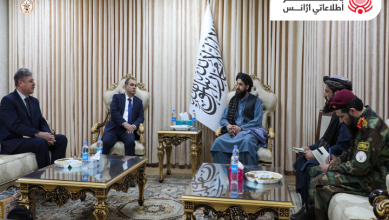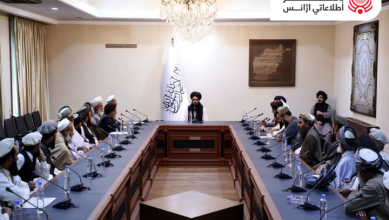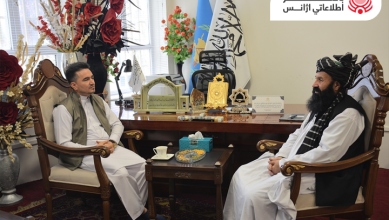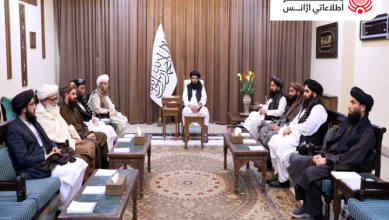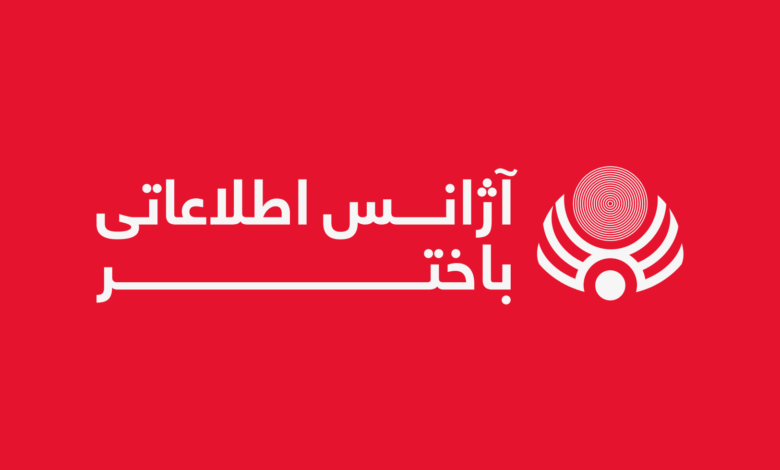
Saturday March 26, 2016
Kabul (BNA) The two-day Fourth Ministerial Meeting of (G7+) countries hosted by the Islamic Republic of Afghanis was held in the Ministry of Foreign Affairs.
The meeting was attended by high-level delegations from twenty (G7+) member states, officials and senior representatives of the United Nations; representatives of financial and economic organizations, ambassadors and members of corps diplomatic in Kabul. The President of Islamic Republic of Afghanistan, Mohammad Ashraf Ghani in his opening remarks said that based on experiences; global peace and stability lies in strengthening weak and least developed states, and for this reason cooperation and support to conflict-affected countries, means cooperation and support to the global peace and stability. “Global stability rests in the hands of states under threat. Fourteen years ago state-building was not considered to be a crucial issue of world interest. Today the question of how to build stable, successful states is the pre-eminent question of our time. Building states and building peace are now goals shared by the entire world,” the president said in the meeting, adding that government institutions often then become the means to perpetuate corrupt behavior rather than the tool for building development and the oversight systems themselves become captured or emasculated.
The president said that we must use these meetings and the network to propose a wholly new set of flexible, effective partnerships that strip away whole levels of stuffy, time-consuming and in the end largely ineffective procedures that grew up over decades of mentored development. According to the president State-building, peace, and market-building are the critical foundations for successful development. “The citizens, and the citizens of the world, are counting us to bring to pass a new model for prosperity, stability, and a future for their children. This process will be long. We who are gathered here in Kabul today are taking small sips from a broad river. But our countries have much wisdom within them. May your discussions be fruitful?” The president concluded. In his welcoming remarks, Minister of Foreign Affairs of the Islamic Republic of Afghanistan, Salahuddin Rabbani welcomed all delegations to Kabul and added that, “Political and economic cooperation, fight against poverty and illiteracy; joint work on policies and strategies to strengthen education, health and agriculture sectors; fight against corruption; provision of basic services to the people and other important sectors can rescue the people of (G7+) member states from war, economic and political crises, as well as bring about sustainable peace and stability in these countries.”
The 4th G7+ Ministerial meeting under the slogan of “goodbye conflict, welcome development” continued on Thursday too. The meeting tackled different challenges faced by conflict-hit countries, including corruption and lack of infrastructure. Participants at the summit also shed light on areas where the international community’s assistance proved ineffective.
The Minister of Finance, Aklil Hakimi, said the meeting was effective in improving the international community’s support and enhancing coordination among developing countries. He also said the meeting was key to attracting the support of the international community for Afghanistan. Representatives of the G7+ member nations meanwhile urged the international community to further assist their countries based on their needs. “Countries that have gone through violence, countries that are still experiencing crises and those that are finished with their crises are on the path of becoming successful countries in terms of bringing themselves out of the fragile situation there were in,” said Kaifala Marah, G7+ chairperson.
Participants at the meeting also explored ways to tackle unemployment, human trafficking and economic growth through attracting investment.
The G7+ group was founded in Timor-Leste in 2010 by seven fragile and conflict-affected countries including Afghanistan as a consultative mechanism on global development policies for countries facing crisis and instability. So far its members have reach to twenty countries. This group has created a participatory framework under the slogan of “Goodbye conflict – Welcome development” with many international organizations, World Bank, UN organizations and research institutions in order to collaborate with them on sensitive issues related to development policies in countries affected by political, economic, security and social crises. The previous meetings of this group were held in Timor-Leste, South Sudan, Haiti and Togo.

